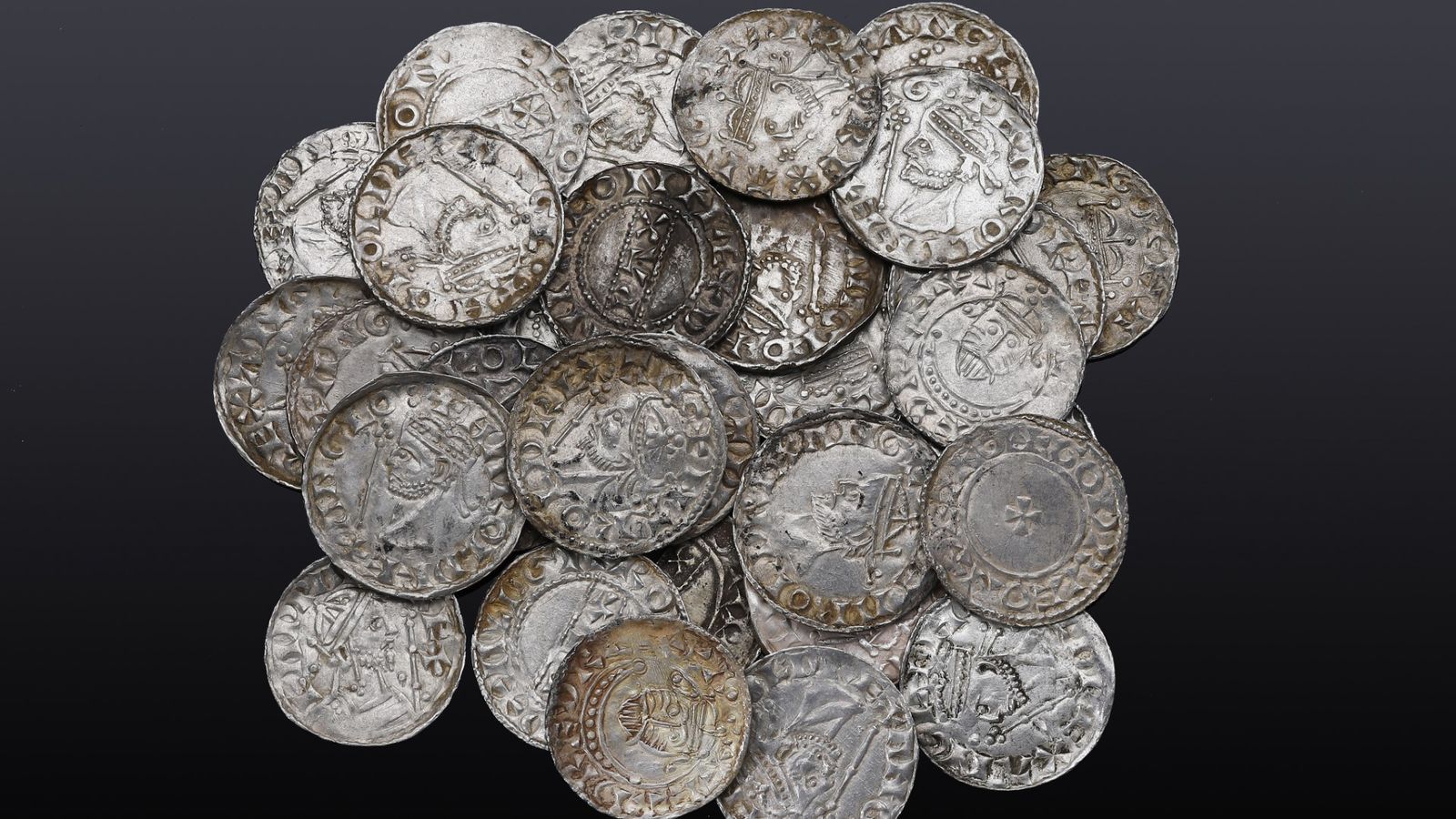A collection of 122 Anglo-Saxon pennies found by two metal detectorists have sold at auction for more than £325,000.
Discovered near Braintree in Essex, it is thought the coins were buried in 1066, the year of the Battle of Hastings which saw William the Conqueror take the throne of England from Harold II.
Coin expert Bradley Hopper said the coins amounted to around 12 shillings, which he said was a “considerable sum of money” at the time.
He said the reason why they were not retrieved at the time could be down to a “tantalising possibility” their owner died in the battle.
They sold at auction at Noonans Mayfair in London for a hammer price of £325,560 on Wednesday, far exceeding the expected price of up to £180,000.
“Wow, this has exceeded all our expectations,” Nigel Mills, artefact and coin expert at Noonans, said.
“The atmosphere in the packed saleroom was euphoric with bidders – in person and online – wanting to purchase just one example from this important collection.”
The proceeds of the hoard will be shared between the two finders and the landowner.
Read more UK news:
Treasure hunting on the rise
Metal detectorists jailed for more than five years
The two metal detectorists – who had been searching together for 20 years – first discovered an unrecognisable penny in 2019. They soon found half a dozen of them within a 30-mile radius, realising they were rare pennies of Harold II.
They collected 144 coins in total, 16 of which were bought by Colchester Museum and Cambridge’s Fitzwilliam Museum after they were processed under the terms of the 1996 Treasure Act.
Late last year, the remaining coins were disclaimed and returned to the finders until 122 of them were auctioned off in London.
The highest price of the sale was paid for a very rare single specimen from the Hastings mint which fetched a price of £24,000 – four times its pre-sale high estimate of £5,000-6,000.
It was bought by an online bidder.








